Ibuprofen-Teva 50s 400 mg coated tablets
$16.70
Description
The instruction for medical use of medicine of Ibuprofen-Tev the Trade name of Ibuprofen-Tev the International unlicensed name Ibuprofen Dosage Form of the Tablet, coated, 200 mg and 400 mg structure One tablet contains active agent – an ibuprofen of 200 mg and 400 mg, excipients: the starch corn modified, sodium of a kroskarmelloz, a gipromelloz, stearic acid, silicon colloidal anhydrous, a cover: gipromelloza, Makrogol 8000, titan dioxide (E 171) Description Round, biconvex tablets, coated white color Pharmacotherapeutic group Anti-inflammatory and antirheumatic drugs. Non-steroidal anti-inflammatory drugs. Propionic acid derivatives. The ibuprofen the ATX M01AE01 Code the Pharmacological Pharmacokinetics Ibuprofen properties is quickly soaked up from digestive tract, peak concentration in blood serum are reached within 1-2 hours after reception. The ibuprofen actively contacts proteins of plasma. Elimination half-life makes about 2 hours. The ibuprofen is metabolized in a liver to two inactive metabolites and removed together with metabolites through kidneys. Removal by kidneys is at the same time fast and full. The pharmacodynamics the Ibuprofen is derivative propionic acid with anesthetic, anti-inflammatory and febrifugal action. It is considered that therapeutic effects of drug are caused by its inhibiting effect on enzyme cyclooxygenase that leads to the significant decrease in synthesis of prostaglandins. Experimental data allow to assume that the ibuprofen can suppress influence of low doses of acetylsalicylic acid on aggregation of thrombocytes when both drugs are appointed at the same time. In one research at single reception of an ibuprofen in a dose of 400 mg within 8 hours to or 30 minutes after intake of acetylsalicylic acid in shape with fast release of drug (in a dose of 81 mg) influence of acetylsalicylic acid on formation of thromboxane or aggregation of thrombocytes decreased. Despite the fact that, there is an uncertainty concerning extrapolation of these data on a clinical situation, probability that regular, prolonged use of an ibuprofen can reduce cardioprotective effect of low doses of acetylsalicylic acid, cannot be excluded. At irregular use of an ibuprofen the effect clinically significant is not considered. Indications – the pseudorheumatism, including the juvenile arthritis or Stilla-Shoffar’s disease ankylosing a spondylitis, an osteoarthritis and other not rheumatoid (seronegative) arthropathies – extraarticular rheumatic and periartikulyarny defeats, such as humeroscapular periarthritis (capsulitis), bursitis, tendinitis, tendosinovit also lower back pain – damages of soft tissues, for example stretching and tension of sheaves – reduction of mild and moderate pain, for example, at primary dysmenorrhea, tooth and postoperative pain, symptomatic treatment of a headache, including migraine the Route of administration and doses for the purpose of minimization of risks of development of undesirable reactions, an ibuprofen it is necessary to accept in a minimal effective dose and throughout minimum short period necessary for achievement of clinical effect. Adults and children are more senior than 12 years: The recommended dose of an ibuprofen makes 1200-1800 mg daily, divided into several receptions. To some patients there can be enough 600-1200 mg a day. In hard and sharp cases the increase in a dose up to the termination of a sharp phase of a disease is possible. At the same time the maximum daily dose should not exceed 2400 mg, divided into several receptions. Elderly people: Elderly people are subject to the increased risk of serious side reactions. Undesirable effects can be minimized, using the lowest effective dose during the minimum span. It is necessary to carry out monitoring of gastrointestinal bleedings. In an abnormal liver function or kidneys the dose of drug should be selected individually. For oral administration. Patients with a sensitive stomach are recommended to take the drug with food. If the drug is taken after a meal, the beginning of action of an ibuprofen can be postponed. It is necessary to wash down drug with a large amount of liquid. Tablets should be swallowed entirely, without chewing, without breaking, not rassasyvy in order to avoid discomfort in a mouth and irritation in a throat. Side effects Gastrointestinal disorders. The most often observed side effects are gastrointestinal: round ulcers, perforation or gastrointestinal bleedings, sometimes from the death, especially at elderly people. Nausea, vomiting, diarrhea, meteorism, constipation, dyspepsia, abdominal pain, melena, gematoyemezis, stomacace, gastrointestinal bleedings and exacerbation of colitis and Crohn’s disease. Gastritis, a duodenum ulcer, stomach ulcer and gastrointestinal perforation were not often observed. From the immune system: reactions of hypersensitivity in the form of nonspecific allergic reaction and an anaphylaxis, reactivity of airways, including asthma, exacerbation of asthma, a bronchospasm or dispnoe, skin diseases, including rashes of various types, naggers, a small tortoiseshell, a purpura, a Quincke’s disease, is very rare – an erythema, a bullous dermatosis (including Stephens-Johnson’s syndrome and a toxic epidermal necrolysis). Heart diseases and vascular disorders: hypostases, hypertension and heart failure. Clinical trials demonstrate that use of an ibuprofen in particular in a high dose (2400 mg a day) can be connected with small increase in risk of development of arterial trombotichesky complications as a myocardial infarction or a stroke. Infections and invasions: Cold and aseptic meningitis (especially at patients with the existing autoimmune disorders, such as system lupus erythematosus and mixed diseases of connective tissue) with symptoms stiff neck, a headache, nausea, vomiting, fever or loss of orientation. There are cases of aggravation of the inflammations caused by infections at use of NPVS. If at use of an ibuprofen for the patient symptoms of an infection arise or worsen, it is necessary to see a doctor immediately. A skin infection and disturbances from soft tissues: in exceptional cases, heavy skin infections and complications of soft tissues against the background of infection with chicken pox are possible. The possible side reactions connected with reception of an ibuprofen are listed below as reduction of frequency of occurrence within each system or body. Side reactions are distributed on frequency: very frequent ≥ 1/10, frequent ≥1/100 and ≤1/10, infrequent ≥1/1000 and ≤ 1/100, rare ≥1/10000 and ≤ 1/1000, very rare ≤ 1/10000. Infections and invasions Infrequently: rhinitis Seldom: aseptic meningitis of Disturbance of the haematogenic and lymphatic system Seldom: leukopenia, thrombocytopenia, neutropenia, agranulocytosis, aplastic anemia, hemolytic anemia of Disturbance of the immune system Seldom: anaphylactic reactions Psychiatric disturbances Infrequently: insomnia, concern It is rare: depression and confusion of consciousness of Disturbance of nervous system Often: headache, dizziness Infrequently: parasthesia, drowsiness Seldom: optic neuritis of the Disorder of vision Infrequently: deterioration in sight Is rare: toxic neuropathy of an optic nerve Vestibular disturbances Infrequently: deterioration in hearing, noise or a ring in ears, vertigo Gastrointestinal disorders Often: dyspepsia, nausea, vomiting, abdominal pain, diarrhea, meteorism, constipation, melena, hematemesis, gastrointestinal bleeding Infrequently: gastritis, duodenum ulcer, stomach ulcer, stomacace, gastrointestinal perforation Very seldom: pancreatitis It is unknown: colitis and Crohn’s disease Gepatobiliarny disturbances Infrequently: hepatitis, jaundice, an abnormal liver function it is Very rare: a liver failure the Skin infection and disturbances from soft tissues: Often: rash Infrequently: urticaria, itching, purpura, Quincke’s disease, photosensitivity Very seldom: heavy skin reactions, for example, multiformny erythema, bullous reactions, including Stephens-Johnson’s syndrome and toxic epidermal necrolysis of Disturbance of an urinary system Infrequently: a toxic nephropathy in various forms, including interstitial nephrite, a nephrotic syndrome, a renal failure the General disturbances Often: fatigue Seldom: hypostasis Cardiological disturbances Very seldom: heart failure, myocardial infarction Vascular disorders Very seldom: arterial hypertension of the Contraindication – hypersensitivity to active agent or other components of drug – asthma, urticaria or other allergic reactions after intake of acetylsalicylic acid or other non-steroidal anti-inflammatory drugs (NPVS) in the anamnesis – the gastrointestinal bleeding or perforation connected with reception of NPVS in the anamnesis – the acute or postponed earlier ulcer colitis, Crohn’s disease, a recurrent round ulcer or gastrointestinal bleeding (existence in the anamnesis of two the confirmed episode of a canker or bleeding independent from each other) – the states which are followed by the increased risk of developing bleedings – heavy heart failure – a heavy liver failure – a heavy renal failure (glomerular filtration rate & lt, 30 ml/min.) – the third trimester of pregnancy, the lactation period – children’s age up to 12 years Medicinal interaction It is necessary to be careful at co-administration with the following drugs because of possible medicinal interaction at some patients. Antihypertensive drugs, β-blockers and diuretics. NPVS can reduce effect of antihypertensive drugs, such as APF inhibitors, antagonists of receptors of angiotensin II, β-blockers and diuretics. Diuretics can increase risk of nephrotoxicity of NPVS also. Cardiac glycosides. NPVS can cause exacerbation of heart failure, reduction in the rate of glomerular filtration and increase in level of cardiac glycosides in blood plasma. Holestiramin. Co-administration of an ibuprofen and holestiramin can reduce absorption of an ibuprofen in a GIT. However the clinical value of it is unknown. Lithium. NPVS can reduce lithium removal. Methotrexate. NPVS can suppress canalicular secretion of a methotrexate and reduce clearance of a methotrexate. Cyclosporine. NPVS increase risk of nephrotoxicity. Mifepristone. Reduction of efficiency of medicine can theoretically happen because of the NPVS antiprostaglandinovy properties. Limited data allow to assume that simultaneous use of NPVS in day of use of prostaglandin does not distort effect of mifepristone or prostaglandin on maturing of a neck of the uterus or contractility of a uterus and does not reduce clinical performance of medicamentous termination of pregnancy. TsOG-2 inhibitors and other NPVS. It is necessary to avoid co-administration with other NPVS, including selection TsOG-2 inhibitors, because of risk of development of additional effects. Acetylsalicylic acid. As well as when prescribing other drugs containing NPVS, the concomitant use of an ibuprofen and acetylsalicylic acid usually is not recommended because of risk of increase in side reactions. Experimental data demonstrate that the ibuprofen can oppress influence of low doses of acetylsalicylic acid on aggregation of thrombocytes at co-administration. However in view of limitation of these data and ambiguity concerning a possibility of extrapolation they on a clinical situation cannot be made the accurate conclusion concerning regular use of an ibuprofen and probable clinical effects at irregular reception of an ibuprofen. Corticosteroids. Increase in risk of gastrointestinal ulcers or bleedings when assigning with NPVS. Anticoagulants. NPVS can enhance effects of anticoagulants, such as warfarin. Hinolonovy antibiotics. The data obtained on animals specify that NPVS can increase risk of appearance of the spasms connected with reception of hinolon. The patients accepting at the same time NPVS and hinolona have the increased risk of developing spasms. Sulphonylurea. NPVS can exponentiate effects of drugs of sulphonylurea. It was seldom reported about development of a hypoglycemia in the patients accepting sulphonylurea when assigning an ibuprofen. Antithrombocytic drugs and selective serotonin reuptake inhibitors. NPVS increase risk of gastrointestinal bleeding. Takrolimus. Increase in risk of nephrotoxicity when assigning NPVS to the patients accepting takrolimus is possible. Zidovudine. NPVS increase risk of hematologic toxicity. There are proofs of increase in risk of developing a hemarthrosis and hematomas at the HIV-positive patients having hemophilia when assigning an ibuprofen against the background of reception of a zidovudine. Aminoglycosides. NPVS can reduce removal of aminoglycosides. Extracts of herbs. The ginkgo of a bilob can exponentiate the risk of bleedings connected with NPVS. CYP2C9 inhibitors. Co-administration of an ibuprofen with CYP2C9 inhibitors can increase exposure of an ibuprofen (CYP2C9 substrate). During one research it was shown that vorikonazol and flukonazol (CYP2C9 inhibitors) increased exposure of S (+) – an ibuprofen approximately for 80-100%. It is necessary to provide an ibuprofen dose decline at co-administration with CYP2C9 inhibitors, especially when assigning high doses of an ibduprofen to the patients accepting vorikonazol or flukonazol. Special instructions Undesirable effects can be minimized, using the lowest effective dose during the minimum span. As well as at use of other NPVS, reception of an ibuprofen can mask infection symptoms. Patients of advanced age At patients of advanced age the frequency of development of side reactions at use of NPVS are higher, especially gastrointestinal bleeding and perforation which can be lethal. Use for children Exists risk of a renal failure at the dehydrated children and teenagers. Gastrointestinal bleeding, ulceration and perforation Development of gastrointestinal bleeding, ulcer or perforation can be at use of all NPVS during any span during treatment. These side reactions can be lethal and develop with or without symptoms harbingers irrespective of existence in the anamnesis of serious pathology of a GIT. Risk of developing gastrointestinal bleeding, ulcer or perforation is higher at increase in doses of an ibuprofen at patients with the ulcer which was especially complicated by bleeding or perforation in the anamnesis and at patients of advanced age. Such patients have to begin treatment with the lowest available dose. It is necessary to consider the possibility of co-administration to such patients of protective drugs (for example, a mizoprostol or inhibitors of a proton pomp), as well as to the patients who are at the same time accepting acetylsalicylic acid in a low dose or other drugs increasing risk of damage of a GIT. It is necessary to avoid co-administration of an ibuprofen and other NPVS, including selection inhibitors of cyclooxygenase-2 (TsOG-2), because of the increased risk of formation of ulcers and bleedings. Patients, especially advanced age, with gastrointestinal diseases in the anamnesis have to report about any unusual abdominal symptoms (especially about gastrointestinal bleeding) at the initial stages of treatment. With care should appoint an ibuprofen the patients receiving the accompanying treatment by drugs which can increase risk of developing an ulcer or bleeding as, for example, oral corticosteroids, anticoagulants, such as warfarin, selective serotonin reuptake inhibitors or antithrombocytic drugs as, for example, acetylsalicylic acid. In case of development of gastrointestinal bleeding or an ulcer in the patient receiving an ibuprofen, drug should be cancelled. Respiratory disorders With care the patients having bronchial asthma, chronic rhinitis or allergic diseases and also the patients having these diseases in the anamnesis as it was reported that the ibuprofen can cause a bronchospasm, urticaria, a Quincke’s disease in such patients should appoint an ibuprofen. Dysfunction of heart, kidneys and a liver can lead Use of NPVS to deterioration in function of kidneys. Daily intake of several analgetics
at the same time in addition increases risk of deterioration in function of kidneys. The patients having dysfunction of heart, kidneys and a liver, accepting diuretics and elderly patients should apply a drug minimal effective dose during the short span and to control function of kidneys, especially at the patients receiving long-term treatment. The Ibuprofen patients should appoint cardiovascular and cerebral and vascular effects with care with heart failure or arterial hypertension in the anamnesis as it was reported about development of hypostases against the background of use of an ibuprofen. Clinical trials demonstrate that purpose of an ibuprofen, especially in a high dose (2400 mg a day) can be connected with small increase in risk of arterial trombotichesky complications, such as myocardial infarction or stroke. Results of epidemiological researches do not allow to assume existence of communication between reception of an ibuprofen in a low dose (≤ 1200 mg a day) and the increased risk of development of arterial tromboembolic episodes. Patients with uncontrollable arterial hypertension, the stagnant heart failure diagnosed by coronary heart disease, a disease of peripheral arteries and/or cerebrovascular diseases an ibuprofen should appoint after the careful analysis of a situation, avoiding high doses (2400 mg/days), as well as before long therapy by an ibuprofen of patients with risk factors of developing a cardiovascular disease (such as arterial hypertension, lipidemia, diabetes, smoking). Effects from kidneys With care it is necessary to begin treatment with an ibuprofen at patients with considerable dehydration. As well as when assigning other NPVS, long reception of an ibuprofen can lead to papillary necrosis of kidneys and other pathological changes in kidneys. Toxic influence on kidneys was also observed at patients at whom renal prostaglandins played a compensatory role in maintenance of perfusion of kidneys. Purpose of NPVS to such patients can cause dose-dependent reduction of formation of prostaglandins and, again, reduction of a renal blood-groove that can lead to a renal failure. The patients with a renal failure, heart failure, liver dysfunction accepting diuretics and inhibitors of angiotensin-converting enzyme (APF) and also patients of advanced age treat group of high risk of development of such reaction. The termination of reception of NPVS usually is followed by restoration of the state preceding treatment. Dermatological effects Very seldom at use of NPVS it was reported about development of serious skin reactions some of which can be lethal, including exfoliative dermatitis, Stephens-Johnson’s syndrome and a toxic epidermal necrolysis. Presumably, the greatest risk of development of these reactions exists in an initiation of treatment. In most cases the beginning of reaction occurs within the first month of therapy. Reception of an ibuprofen should be stopped at the first appearance of rash on skin, injury of a mucous membrane or any other signs of hypersensitivity. Hematologic effects the Ibuprofen, it is similar to other NPVS, can oppress aggregation of thrombocytes and extend a bleeding time at healthy people. Aseptic meningitis In rare instances at the patients receiving an ibuprofen developed aseptic meningitis. Though it is more probable at patients with a system lupus erythematosus and other diseases of connective tissue, was reported about development of this complication also at patients without the accompanying chronic diseases. Pregnancy and the period of a lactation Oppression of synthesis of prostaglandins can adversely influence a course of pregnancy and/or development of an embryo/fruit. Data of epidemiological researches allow to assume increase in risk of a miscarriage and development of heart diseases and a gastroshizis after use of inhibitors of synthesis of prostaglandin in the early stages of pregnancy. It is supposed that the risk increases with increase in a dose and duration of therapy. It is not necessary to appoint an ibuprofen in the first and second trimesters of pregnancy without emergency. In case of purpose of an ibuprofen the women planning pregnancy or in the first or second trimester of pregnancy should apply as it is possible a smaller dose during as it is possible a smaller span. Use of any inhibitors of prostaglandin in the third trimester of pregnancy can influence a fruit, causing development of cardiopulmonary toxicity (with premature closing of an arterial channel and pulmonary hypertensia), dysfunction of kidneys which can progress to a renal failure with oligogidramniony. At the end of pregnancy inhibitors of synthesis of prostaglandin can influence a condition of mother and newborn child with possible lengthening of a bleeding time, oppression of contractility of a uterus that can be followed by a delay and prolongation of childbirth. Thus, use of an ibuprofen in the third trimester of pregnancy is contraindicated. It is not recommended to appoint an ibuprofen to women during patrimonial activity. It can lead to a delay of the beginning of childbirth, lengthening of the period of childbirth and increase in tendency to bleeding at mother and the child. Use in the period of a lactation during limited number of researches the ibuprofen was defined in breast milk in very low concentration. The women nursing are not recommended to appoint an ibuprofen. Features of influence of medicine on ability to run the vehicle or potentially dangerous mechanisms Treatment by an ibuprofen can influence time of reaction of patients that should be considered in need of special attention, for example, when driving or the operational equipment. Overdose Signs and symptoms of overdose at adults usually were not observed at doses lower than 100 mg/kg. However, the supporting actions in certain cases can be required. At children the signs of overdose appear after reception of a dose from 400 mg/kg or above. Symptoms. At most of patients the symptoms of overdose develop within 4-6 hours after reception of a significant amount of an ibuprofen. The most frequent symptoms of overdose include: nausea, vomiting, abdominal pain, apathy and drowsiness. Manifestations from the central nervous system (CNS): a headache, a ring in ears, dizziness, spasms and a loss of consciousness. It was seldom reported about a nystagmus, a metabolic acidosis, a hypothermia, symptoms from kidneys, gastrointestinal bleeding, a coma, an apnoea, diarrhea and oppression of central nervous system and a respiratory system. It was reported about a disorientation, excitement, cardiovascular toxicity, including development of arterial hypotension, bradycardia and tachycardia. In cases of considerable overdose the development of a renal failure and injury of a liver is possible. The considerable overdose is usually well transferred if other drugs were not taken. Treatment. Symptomatic. Within one hour after reception of potentially toxic dose it is necessary to accept activated carbon, to wash out a stomach. It is necessary to provide a diuresis with control of function of kidneys and a liver. Patients have to be observed within not less than 4 hours after reception of potentially toxic amounts of drug. Frequent or long spasms it is necessary to treat by means of intravenous administration of diazepam. A form of release and packing On 10 tablets in blister strip packaging from a film of polyvinylchloride and aluminum foil. On 2 or 5 blister strip packagings together with the instruction for medical use in the state and Russian languages place in a cardboard box. To Store storage conditions at a temperature not above 25 °C. To store out of children’s reach! 3 years not to apply a period of storage after an expiration date. Prescription status According to the prescription Merkle GmbH Producer, Germany the Owner of the registration certificate “ratiofarm GmbH”, Germany the Address of the organization accepting in the territory of the Republic of Kazakhstan claims from consumers on quality of products (goods) of ratiofarm Kazakhstan LLP, 050040, Almaty, Al-Farabi Ave. 19, BC Nurly-Tau, 1B, office 603. The address of the organization, in the territory of the Republic of Kazakhstan responsible for post-registration observation of safety of medicine of ratiofarm Kazakhstan LLP, 050040, Almaty, Al-Farabi Ave. 19, Nurla Tau’s BC, 1B, office 603.
To develop
Additional information
| Ingredient |
|---|

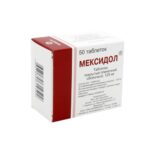
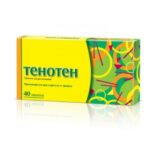
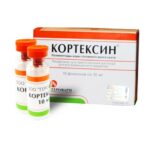
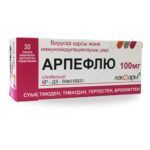
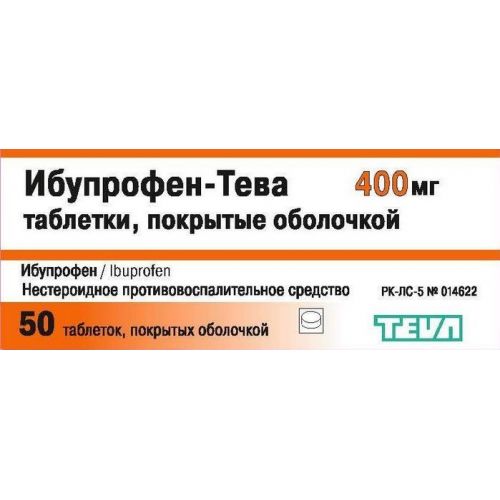
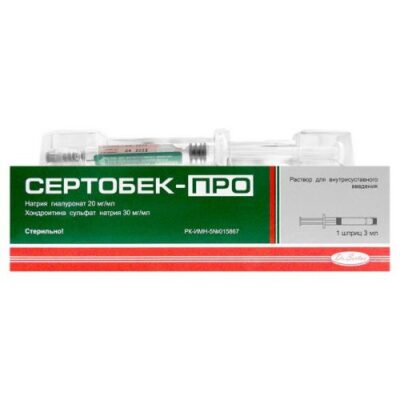
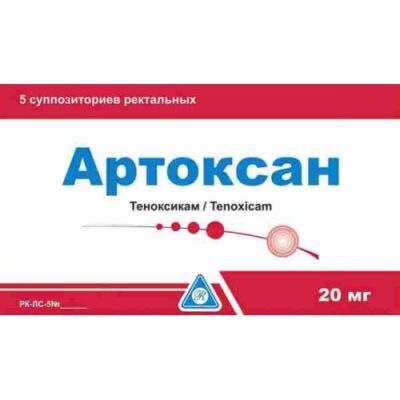
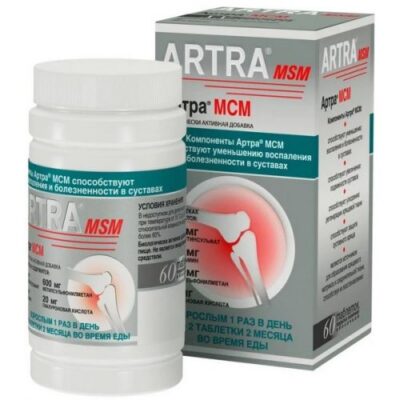
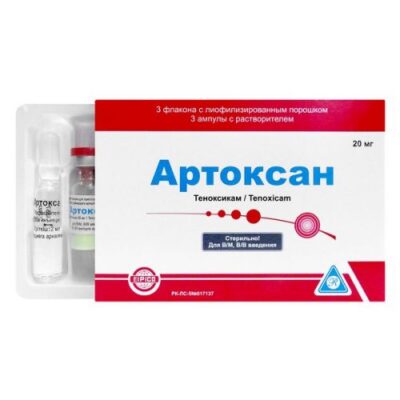
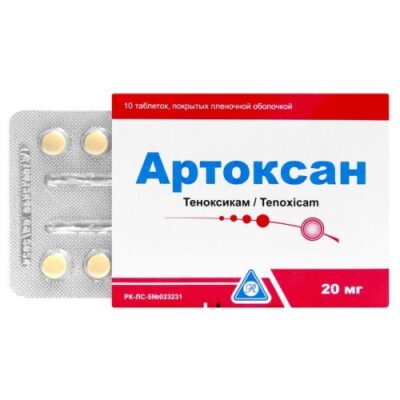
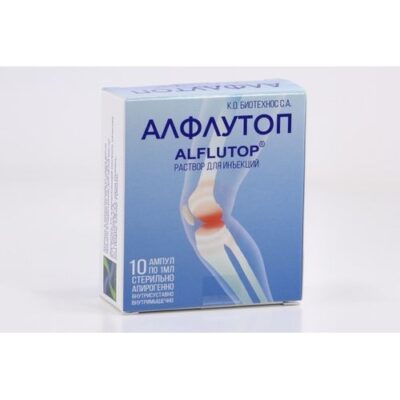
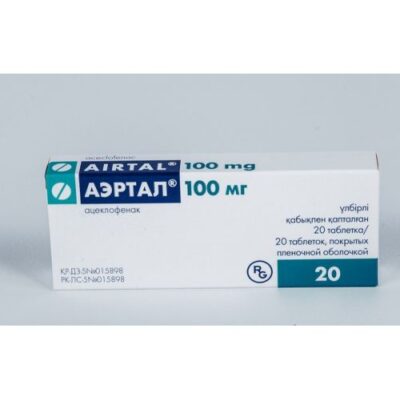
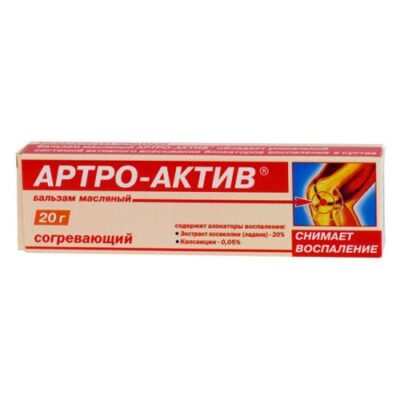
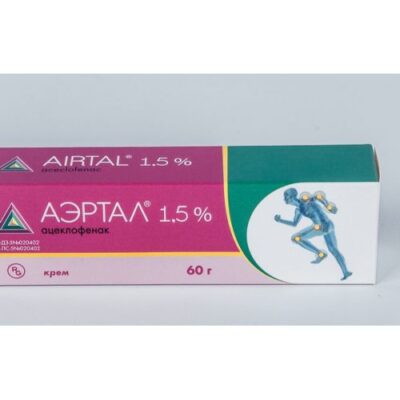






Reviews
There are no reviews yet.